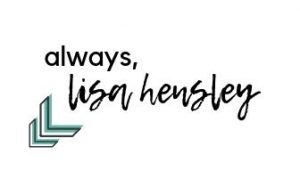What I Read in February + how I evaluate stories
Over the years, my metric for good fiction has changed. I jumped into the Christian fiction realm as a young teenager, read excessively and honestly, found it lacking more and more as I got older. Since my goal here isn’t to critique (some forms of) Christian fiction, I’m going to leave it at that. What I want now is a story that accurately portrays humanity with all the beauty and flaws that come with being human. I don’t want performative sin in an imaginative world where consequences aren’t real. I also don’t want to see evil glorified, that’s a different narrative altogether. But neither am I looking for a pretend world that shows no parallel to reality. Even stories that at first glance seem far removed from our everyday lives such as fantasy or dystopian fiction only work when they reveal the world that we thought we knew.
Some of these stories might have themes that are outside of a kingdom ethic. We will all encounter people whose stories fall outside of kingdom ethics. All of our stories fall outside a kingdom ethic in places. Reading fiction can help prepare us for these encounters around our dinner tables. We need to wrestle with concepts in embodied life and not just academic theories. If this person, from this book, were drinking coffee in my living room, how would I respond to the story?
Of course everyone has different limits. The stories you can read/watch/listen to will be limited by your experiences, past trauma, your age and maturity, personal temptations, and so many other things. I cannot prescribe those limits to you and I have no desire to do that. This is just a potential opportunity to reframe the point of stories.
February Reads:
When Narcissism Comes to Church by Chuck DeGroat was a tough, but hopeful read. The church is starting to become widely known for popular narcissist leaders (not ignoring the many, many faithful leaders who serve quietly in the shadows) and we need to be equipped to recognize and remedy the narcissism in others and ourselves. This book is a great starting point.
We Run the Tides by Vendela Vida was my fiction read from The Bookshelf. I read it in a weekend and I can’t decide if I liked it or not. It was fascinating though, and I’m still ruminating over parts of the story. Content warning.
A friend gave me Essentialism by Greg McKeown as a birthday gift. I loved this book; I understand why some people say that they reread it every year. Some of these practices I have been forced to do by the pandemic and that has made it easier to understand how others he discusses could help my life. If you are constantly too busy or don’t know how to say “no,” pick this one up.
KJ Ramsey recommended Letters to a Young Pastor by Eric Peterson and Eugene Peterson to me on Instagram. The book is a collection of Eugene’s letters to his son Eugene relating to pastoring and I described it as “satisfying, like pot roast” when I shared about it on Instagram.
Steal Like an Artist by Austin Kleon was a re-read. It’s not the first time I’ve re-read it and I also gifted it to a friend this month. It’s ten short snippets about creativity and it’s provoking and practical and funny. It’s also the first of a trilogy. Read them all.
The Unseen Realm by Michael Heiser was my academic read this month. It was big and fascinating and slow to work through. I was prepped for the content by much listening to Bible Project and some of my own reading of the Bible and asking questions, but you might not be. Be prepared for some challenges. Maybe read it with a friend. It is worth the effort.
I picked up Homegoing by Yaa Gyasi because of the chatter around her newest book. I read it a couple of chapters at a time because the stories were so raw and hard and stunning. Gyasi is a phenomenal writer. She wove together the stories of two sisters and their subsequent generations in a way I wouldn’t have imagined would actually work. I am planning to read Transcendent Kingdom soon. Definitely a content warning here.
Reading While Black by Esau McCaulley was our book club read for this month. I read it when it released last year and then read it again before our online discussion. I was also assigned parts of it in a seminary class right after it released. I cannot recommend this book enough, especially if the majority of your training in reading Scripture has come from white men. His work is compelling and canonical (meaning he reaches across all of Scripture to make his arguments). Five out of five stars.
I finished This Hallelujah Banquet by Eugene Peterson this past Saturday. It is a collection of his sermons on Revelation that was compiled by editor Paul J Pastor (who himself wrote a stunning book on the Holy Spirit). This Hallelujah Banquet contained this quote, ” Sometimes it is easier to die for the truth in a crisis than to live through a dull week at work. The truth test comes, though, not on the heights to which we rise under pressure but through those ordinary hours when we don’t know we are being examined at all. Truth is not just right answers but a right life. Christ is our comprehensive, personal truth to be expressed in gestures, actions, and conversations when no one is watching.”
I’m also reading The Deeply Formed Life by Rich Villodas with the woman I’m discipling (also for the second time; it will be a staple), The Source of Self-Regard by Toni Morrison at nights before I fall asleep, and Mary Oliver’s Dream Work.
Photo by Syd Wachs on Unsplash


